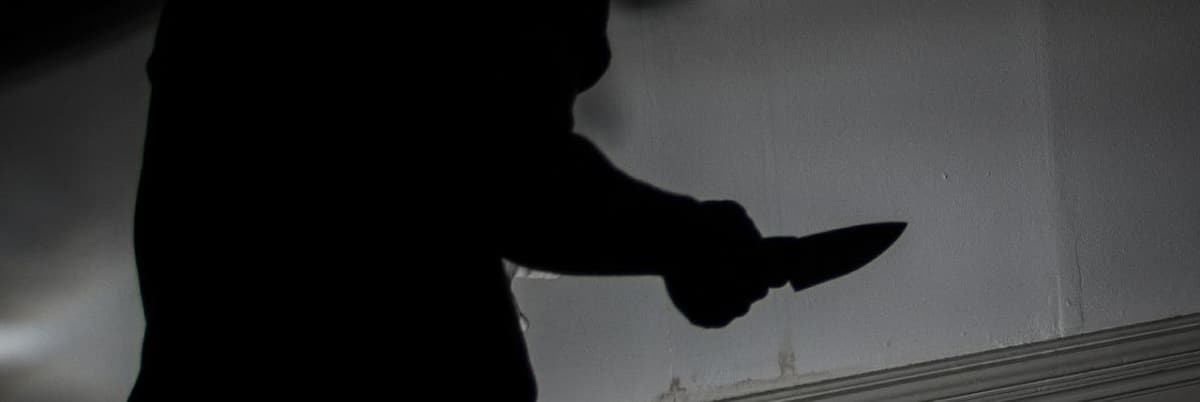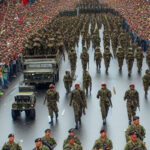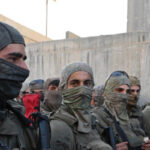On the morning of Jan. 31, the Ancona State Police arrested three Tunisian nationals following an investigation by the DIA of the Marche capital in coordination with the Macerata Public Prosecutor's Office and conducted by the DIGOS of Rome and Macerata. The operation, dubbed "Wet Shoes," led to 44 searches of 18 suspects for various crimes and 26 other people who were found to be connected in various ways to the criminal organization dedicated to aiding and abetting illegal immigration in the provinces of Ancona, Fermo, Ferrara, Catanzaro, Modena, Macerata, Syracuse and Verona. Among the locations targeted by investigators was also a Tax Assistance Center (CAF) in the Macerata area and a farmhouse, also in the same province, used as a hideout by the illegal immigrants.
According to the findings of the investigation, thanks to complicities in the Macerata area (business owners and public officials, with connections in other Italian regions and abroad), the group was able to manage the arrival on the Sicilian coasts of illegal immigrants (mostly North Africans who had departed from Tunisia), the logistical support and also the cover needed to obtain the necessary documentation to facilitate their transfer throughout the Schengen area. Even more disturbing, among the foreigners intent on reaching other EU countries were individuals linked to jihadist networks.
It should also be noted that Operation Wet Shoes stemmed from developments in investigations related to the Dec. 19, 2016 terrorist attack in Berlin perpetrated by Tunisian terrorist Anis Amri, who also arrived illegally in Italy where he stayed before reaching Germany with false documents. Amri was killed four days after the attack in Sesto San Giovanni, in a firefight with police.
It is worth mentioning that the provinces of Ancona and Macerata had already emerged a few years back as areas targeted by Islamist terrorism; in fact, Nourreddine Chouchane, a member of Ansar al-Sharia who had helped plan the Sousse beach shooting and the attack on the Bardo Museum in 2015, had stayed there in the past. Chouchane was killed in February 2016 in Libya by a U.S. airstrike. Another place in the area already affected by investigations against a number of Pakistanis accused of terrorism (but also by other investigations related to drug dealing for the purpose of financing jihad) is then the Hotel House in Porto Recanati, a huge and run-down residential complex also known as the "vertical ghetto."
The fact that, thanks to Operation Wet Shoes, the said organization has been broken up is certainly very good news, particularly at a time when we are witnessing the resurgence of attacks in Europe: at least three since the beginning of January.
- On Jan. 11, at the Paris Gare du Nord station, an irregular North African with a record stabbed several people with knives, shouting "Allahu Akbar," before being stopped by police.
- The Jan. 19 at Brussels South station an individual whose identity has not been disclosed stabbed several people shouting "Allahu Akbar" before being taken into custody.
- The Jan. 25 in Algeciras, southern Spain, a 25-year-old Moroccan illegal immigrant verbally assaulted worshippers inside a church and then wounded the priest with a machete and killed the sacristan of another church nearby before being stopped by police.
Then there remains the unknown motive regarding the attack perpetrated by a stateless Palestinian man with numerous criminal records aboard a train near the German town of Brokstedt, which killed two people and injured several others.
As if that were not enough, on January 30, another individual attacked and stabbed three people at Brussels' Schuman station before being stopped by officers. Again, no information was leaked as to the motive or identity of the assailant.
The fact is that all of the attacks since the beginning of the year have occurred in stations or on board trains, among jihadism's favorite soft-targets, while only in the Spanish case have Catholic churches been targeted.
This clearly suggests that terrorism is still a danger to Europe, just as the flow of illegal immigrants from North Africa, an essential channel for the infiltration of terrorists into Europe, continues to be, as has already been demonstrated on numerous occasions and to the detriment of those who claimed that "jihadists do not arrive by barges," a purely ideological position far removed from the reality of the facts. Very little has been done so far to effectively curb the phenomenon and, not surprisingly, many terrorists who have struck in Europe have transited through Italy.
We welcome operations like the one initially mentioned, but at the same time there is no way of knowing how many potential terrorists have already entered and are ready to strike. This is a big problem, because one cannot simply wait for someone to go active and kill, then point to them as "crazy" or "misfit," as there have already been three deaths and numerous injuries since the beginning of the year.
Researcher of Centro Studi Politici e Strategici Machiavelli. Graduated in Sociology (University of Bologna), Master in "Islamic Studies" (Trinity Saint David University of Wales), specialization in "Terrorism and Counter-Terrorism" (International Counter-Terrorism Institute of Herzliya, Israel). He is senior analyst for the British Islamic Theology of Counter Terrorism-ITCT, theItalian Team for Security, Terroristic Issues and Managing Emergencies (Catholic University of Milan) and the Kedisa-Center for International Strategic Analysis. Lecturer for security managerlaw enforcement and post-degree courses, he has been coordinator for Italy of the European project Globsec. “From criminals to terrorists and back” and is co-founder of Sec-Ter- Security and Terrorism Observation and Analysis Group.









Quante persone innocenti devono morire in nome di questa folle politica di immigrazione nell’Europa occidentale? Anche da noi negli Stati Uniti, l’immigrazione e andato fuori controlo. Adeguatamente controllata, l’immigrazione può essere una buona cosa, ma questa è un’invasione di giovani maschi non accompagnati e provenienti da tutti i paesi sbagliati.